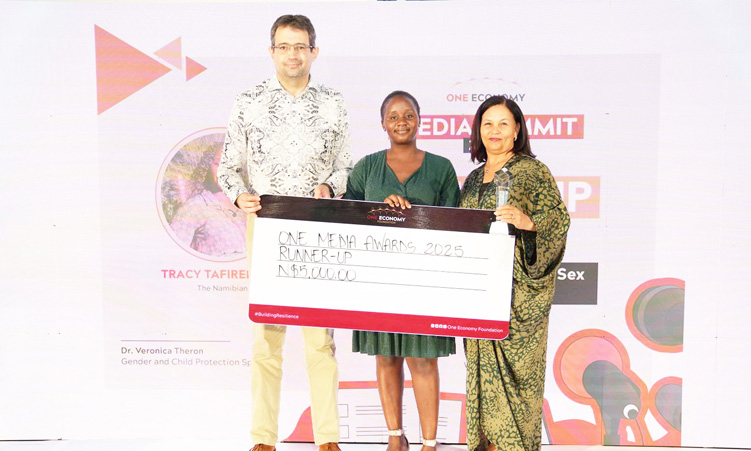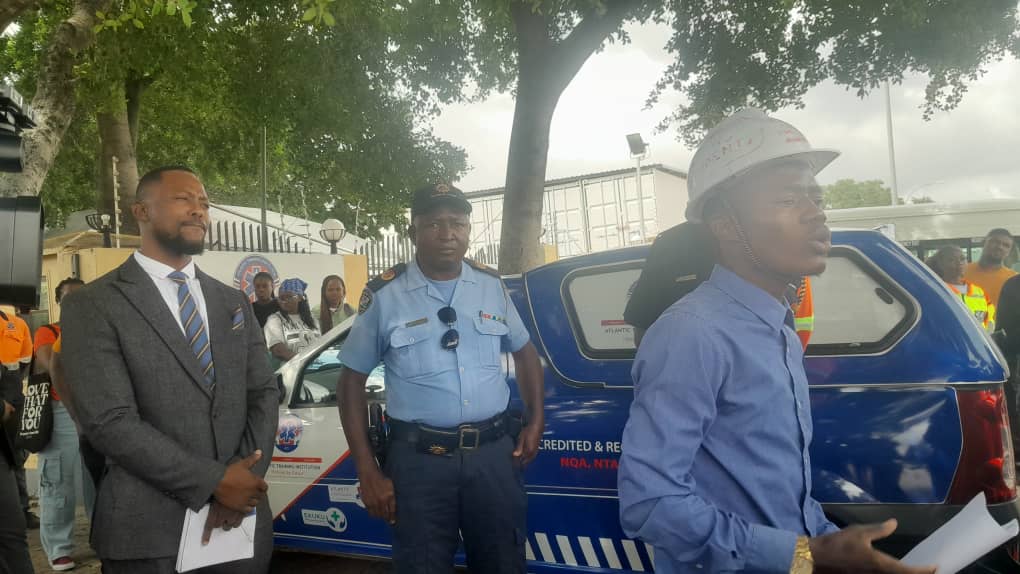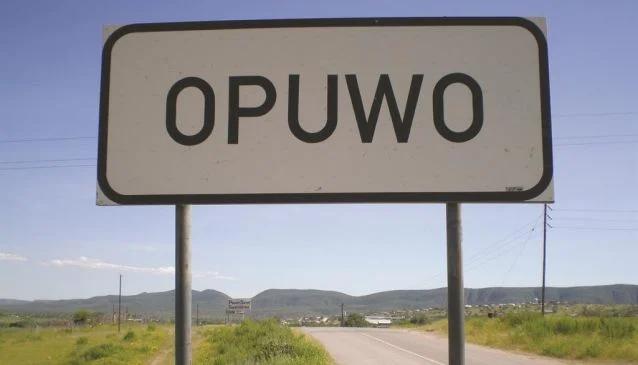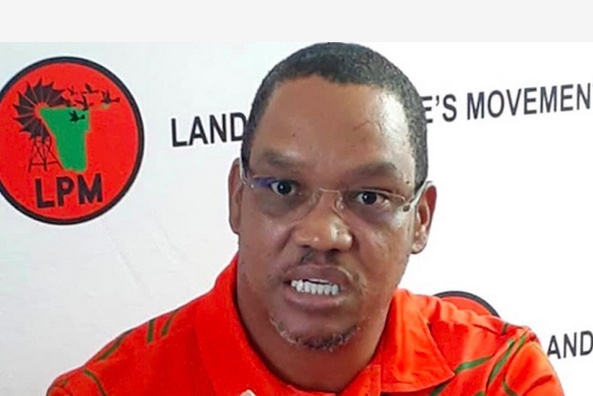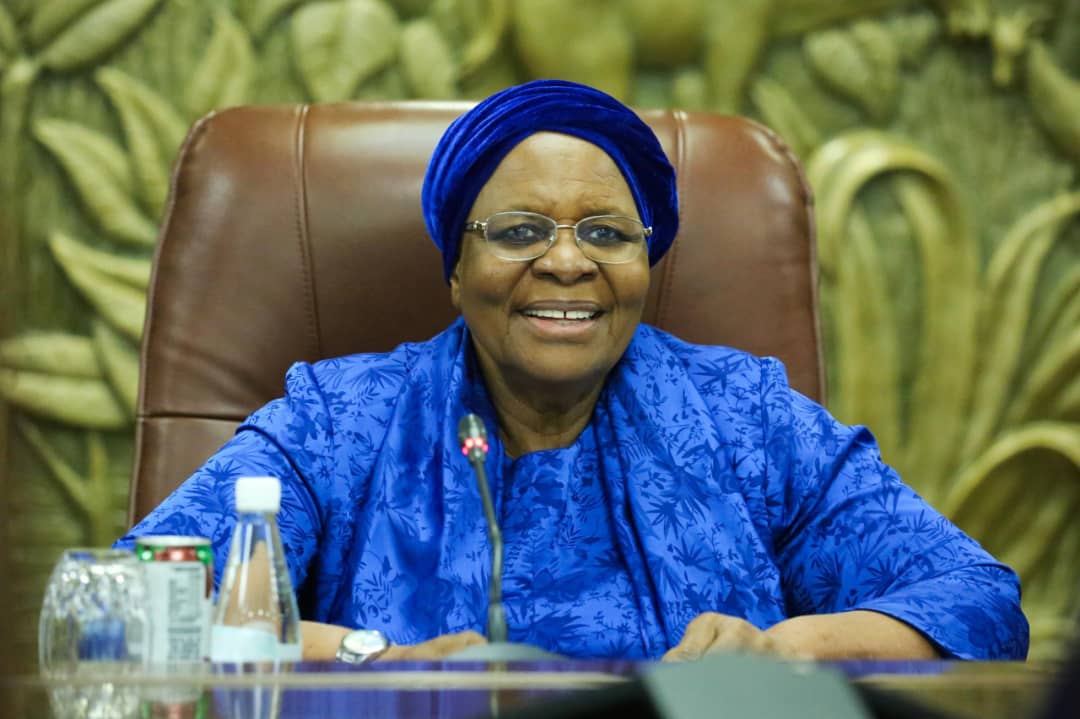The One Economy Foundation hosted its second media summit and awards in Windhoek on Friday.
The summit aimed to strengthen appropriate reporting techniques on sexual and reproductive health, gender-based violence (GBV) and femicide, and mental health, by providing a platform for journalists, editors and other frontline service providers to engage in meaningful dialogue and share best practices.
One Economy director of health and wellness Veronica Theron said the media plays a pivotal role in shaping public perceptions, influencing attitudes, and impacting behaviours, policies and systems, as well as creating a safer society for all.
This year, Josina Machel, founder of the Kuhluka Movement and a survivor of GBV, served as the keynote speaker.
In her keynote address, she narrated her story as a survivor of GBV.
The violent ordeal happened in October 2015 and led to the loss of her eye.
She said that as a result of her abuser’s manipulation of the media, the health system and law enforcement, they portrayed her injury as the result of a fall, disregarding the fact that she had been physically assaulted.
In her case, the media also amplified the voice of her abuser instead of hers. Her ordeal illustrates the media’s role in the fight against GBV.
“My abuser has been declared innocent because the courts ruled that there was no concrete proof that I was physically abused. To this day, there is still no justice,” she said.
Machel urged journalists to give survivors a voice to amplify their stories.
She noted that GBV is systematically tolerated, and the media should serve as a tool for justice in addressing such instances.
University of Namibia School of Nursing senior lecturer Emma Nghitanwa said access to sexual and reproductive health is a fundamental human right.
She encouraged the media to challenge misconceptions surrounding it, adding that reporting on sexual and reproductive health should be fair and unbiased, to not negatively influence public perception.
“Sexual and reproductive health rights is a fundamental human right, and the media should challenge misconceptions surrounding it. The media should also play an educational role in raising awareness about sexual and reproductive health and rights,” she said.
During an interactive group discussion, the participants explored the role they play in addressing sexual and reproductive health, GBV and femicide, and mental health. In these discussions, the journalists brainstormed and shared strategies for better reporting on sexual and reproductive health, GBV and femicide, and mental health issues.
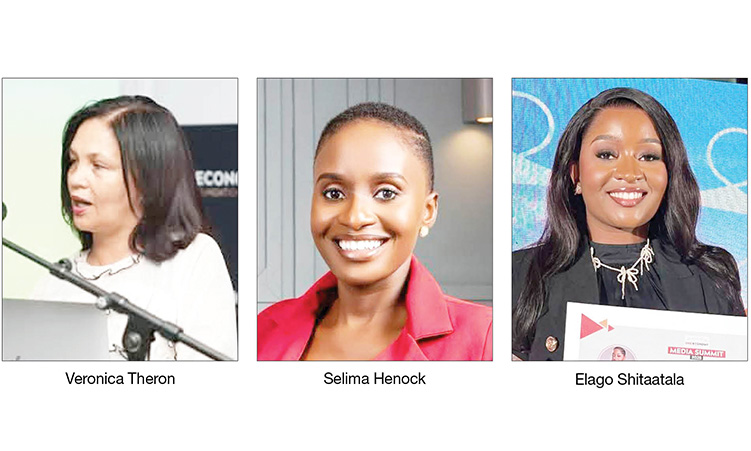
They noted the need for public education in terms of reporting, reports that illustrate the crux of these sensitive issues, and follow-up reports.
The Namibian journalists Shelleygan Petersen and Tracy Tafirenyika secured first and second places, respectively, in the print category at the 2025 One Economy Foundation Media Awards.
Petersen won with the story ‘Workplaces fail nursing mothers’, and Tafirenyika with the story ‘Police investigate student sex exploitation, as 20 000 children are victims of online sex work’.
Desert FM journalist Charlotte Nambadja won in the radio category with the story ‘Love should not hurt’.
The awards recognised exceptional journalism in the areas of sexual and reproductive health, GBV, femicide and mental health.
The digital media award winner was Shaun Adams with ‘Access to contraception and family’, followed by Sister Namibia’s Hildegard Titus with ‘Namibia decriminalises sodomy’
The television awards went to Namibian Broadcasting Corporation’s Selima Henock with ‘Namibia and Angola in talks over plight of Angolan children’, followed by Elago Shitaatala with ‘Voices against violence’.
Nambadja says her story of GBV speaks of how women and men have died or experienced emotional and physical abuse at the hands of those they love.
“It also tells of how grieving families become hopeless due to justice delayed, hoping for justice to be served. Some use the term ‘passion killing’. There is nothing passionate about killing. People are supposed to feel protected and loved when in a romantic relationship.”
Nambadja’s story also tells of a pensioner (80) who was raped and murdered two years ago, and yet no suspect has been apprehended, leaving the family with no closure.
“We do not tell stories to win, but to sensitise the listeners on the impact this has on families left behind. I commend the One Economy Foundation for recognising the work of journalism. I thank Desert FM production officer Enoke Kaumba who edited the documentary,” she says
Tafirenyika says the achievement would not have been possible without the guidance and support of The Namibian’s investigative unit editor, Shinovene Immanuel.
“We dedicated months of research, interviews and consultations to produce a well-balanced and impactful story. One of the key motivations behind this investigation was the alarming rise of children falling victim to online sexual exploitation, particularly through social media platforms like Instagram,” she says.
She notes that Namibia currently lacks specific legislation to protect minors from such forms of online exploitation, leaving them vulnerable to predators.
She commends the One Economy Foundation for motivating journalists to continue exposing critical societal issues and reinforcing the importance of investigative reporting in driving meaningful change.
Petersen says although sexual and reproductive health rights are pertinent and essential to women, they are not prioritised.
“Pregnancy, giving birth and nursing afterwards are known to be part of life yet these considerations aren’t made as part of work life, which is not right. It is considered a luxury rather than a basic necessity for working women to have access to nursing facilities.”
She says the award is a win for access to information and sexual and reproductive health rights.
Stay informed with The Namibian – your source for credible journalism. Get in-depth reporting and opinions for
only N$85 a month. Invest in journalism, invest in democracy –
Subscribe Now!




